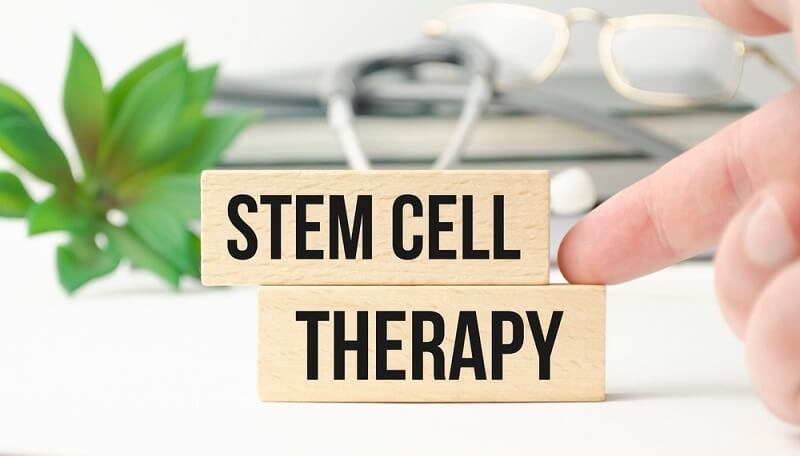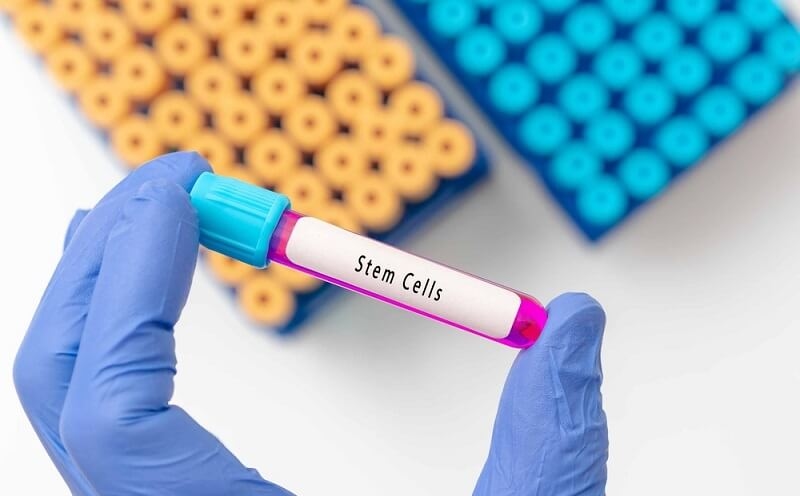Stem Cell Therapy for Cancer: Advances, Costs & Success Rate

Cancer remains one of the leading causes of death worldwide, prompting scientists and medical professionals to explore innovative treatments. One such promising advancement is stem cells for cancer therapy. This cutting-edge approach harnesses the regenerative power of stem cells to combat cancer at a cellular level, offering hope for more effective and personalized treatments. In this article, we will delve into how stem cell therapy for cancer works, its benefits, the role of CAR T-cell therapy, its cost, success rates, and ongoing trials.
Understanding Stem Cells and Their Role in Cancer Therapy
Regenerative stem cells are undifferentiated cells which are unique because they can further develop to a number of different specialized cell types. Thus, their property on regeneration makes them a considerable resource in medical research, including cancer treatment purposes. In treating cancer, cell therapy is using stem cells to repair or replace tissue or stimulate the immune system, and even directly against the cancer cells.
Types of stem cells for cancer therapy:
- Hematopoietic stem cells (HSCs): Present in bone marrow, these stem cells can differentiate into different blood cells and have been largely used for bone marrow transplants performed at the leukemia and lymphoma units.
- Mesenchymal stem cells (MSCs): These stem cells possess immunomodulatory properties and can target delivery of the therapeutics towards cancer tissues.
- Induced pluripotent stem cells (iPSCs): Genetically reprogrammed adult cells which behave much like embryonic stem cells and offer hope for personalized cancer therapy.
- Embryonic stem cells (ESC): These stem cells are derived from embryos that are at an early stage in their growth and which have the ability to develop into any differentiated tissue; however, their derivation involves moral concerns.
Stem Cell Therapy For Cancer: Mechanisms and Benefits

Stem cell-based treatments fight cancer using these mechanisms:
- Damaged tissues regeneration: Since healthy cells are mostly attacked by chemotherapy and radiotherapy, stem cells help in the regeneration of the same damaged tissues and thus recovery is enhanced after therapy.
- Targeted Delivery of Drugs: MSCs can carry anti-cancer drugs at the tumor site, which will reduce side effects of drugs having systemic action.
- Immunological: Some stem cell therapies even boost the immune response of the body towards cancer cells.
- Genetic engineering: Precision treatment: Engineered stem cells can be programmed to seek and destroy cancerous cells, increasing efficiency of treatment.
Benefits of Stem Cell Therapy
- Comparative reduction in adverse effects as that of chemotherapy and radiation.
- Improved survival rates in patients with blood cancers.
- Individualized treatment plans for patients.
- Long-term remission and a lower frequency of relapses.
- Improved quality of life during cancer treatment.
- Immunotherapy-hybridized future.
CAR T-Cell Therapy: A Revolutionary Approach in Cancer Treatment
The use of genetically engineered T-cells to identify and attack tumors is the new form of cell therapy for cancer that is termed chimeric antigen receptor (CAR) T-cell therapy. It involves extracting a patient's T-cells, modifying them or programming them with a receptor that sensitizes them to cancer and then transfusing them back into the patient's bloodstream.
How CAR T-cell Therapy Works:
- T-Cell Collection: Blood is drawn and T-cells separated from the patient.
- Genetic Modification: The T-cells are genetically engineered to express CARs that target the patient's specific cancer markers.
- Expansion: These genetically modified T-cells multiply in a laboratory.
- Infusion into the Patient: The patient is reintroduced to these engineered T-cells to allow them to attack the cancer cells. Monitor and Response: Patients are monitored for immune reactions and treatment effectiveness.
Cost and Access of CAR T-Cell Therapy
CAR T-cell therapy is mesmerically performing, but it brings a considerable price obstacle to patients. Costly CAR T-cell therapy costs differ by individual's type of insurance and hospital location of the patient within the country. On average
- CAR T-cell therapy cost ranges from $373,000 to $475,000 per patient
- plus hospitalization, follow-up visits, and treatment of side effects.
- Insurance claim and financial assistance programs may lessen the cost burden for some qualified patients.
Car T Cell Therapy Success Rate
Nonetheless, it is quite impressive that CAR T-cell therapy has very high rates of success, particularly for blood tumors like leukemia and lymphoma.
- According to clinical trials, 70% to 90% of leukemia patients achieve remission following treatment.
- Long-term survival rates are gradually improving as researchers perfect the therapy. Continued studies are to develop its application to solid tumors, with favorable early responses.
- Some patients remained in remission for several years following their treatment.
- Studies are also being done to enhance the success with other treatments combined into its use.
Car T Cell Therapy Trials and Future Prospects
Ongoing CAR T-cell therapy trials are exploring new ways to enhance efficacy, reduce side effects, and expand treatment options. Some areas of focus include:
- Targeting Solid Tumors: Certainly, while CAR T-cell therapy should be working well with hematological tumors, its clinical application becomes much more problematic in solid tumors.
- Combination Therapies: Much may be expected from the combination of CAR T-cells with checkpoint inhibitors and other immunotherapies to improve the cancer-fighting abilities.
- Reduced Toxicity: Efforts to reduce side effects caused by cytokine release syndrome (CRS) and neurotoxicity.
- Universal CAR T-Cells: Research into "off-the-shelf" CAR T-cells to provide treatments readily available without the intervention of adapting to each individual patient.
- Improved Engineering: Research is ongoing to improve the designs of CAR so that their targeting specificities will increase and result in fewer unintended toxicities.
- Beyond Cancer: Development of CAR T-cells to autoimmune diseases and infectious conditions are also explored by researchers.
Challenges and Ethical Considerations
However, certain issues need to be addressed before these cells can be used for the treatment of cancer:
- High-cost Treatments: Stem cell and CAR T-cell treatments would be rendered more accessible where affordability is a concern.
- Long-Term Effect in Terms of Safety and Efficacy: Long-term follow-up would assess the safety and efficacy of these treatments.
- Ethics: Issues for the ethics of these concerns would include using such embryonic stem cells, which need regulation.
- Regulatory Clearances: Stringent tests and approvals will prevent unsafe treatments from reaching patients.
- Possible Immune Reactions: It can happen that several patients experience extremely high intense immune responses needing intensive management.
- Availability and scalability: High-quality stem cells need to be present in sufficient quantity to ensure their widespread application.
The Future of Stem Cell Therapy for Cancer
Research innovations, technological advancements, and clinical applications will continuously enhance stem cell therapy for cancer, and the main developments to watch for would be:
- More Personalized Treatments: AI will be put to work analyzing genetic data to personalize therapies for each individual patient.
- Manufacturing Techniques: New culture and expansion techniques will improve the cost-effectiveness of a treatment.
- Accessibility: Initiatives both from the public and private sectors can help reduce costs and improve access to these essential treatments, thus granting a larger reach to the treatment.
- In Combination with Other Therapies: Stem cell-based therapies might be combined with CRISPR for gene-editing purposes coupled with nanotechnology. This could lead to the development of therapies that are highly specific and effective for the treatment of cancer.
- Expanded Treatment Applications: Additional studies are exploring the application of stem cells for cancer recurrence prevention, along with tissue repair for damage incurred by standard cancer treatment.
- Advancements in Immune System Modulation: Future therapies might be geared more toward enhancing the memory of the immune system to recognize and kill any cells that are cancerous.
Conclusion
Stem cell-based treatments, particularly CAR T-cell therapy, are revolutionizing the way cancer is treated. While stem cell therapy for cancer holds immense promise, challenges such as cost, accessibility, and ethical considerations must be addressed. As CAR T-cell therapy trials continue to advance, the future looks bright for personalized and more effective cancer treatments. With ongoing research and innovation, cell therapy for cancer is set to change the landscape of oncology, offering hope to millions of patients worldwide.
This content was created by AI

